JCPOA revival talks, started in April, suspended until seventh round
“Methods and people may change, but the goals and the framework are fixed.” This is how one lawmaker described the situation with regard to the Rouhani Raeisi transition and the fate of the JCPOA.
Indeed the new Iranian President Raeisi did pledge to have international sanctions lifted, as he pledged to improve ties with neighboring countries and unite the country’s political factions.
The new president realizes the straight path to sanctions relief is the revival of the JCPOA or Iran Nuclear Deal, signed in 2015 under former President Rouhani, a moderate.
But the principlist now in office may take a harder stance in verifying US good faith and sanctions relief before he leads the country into fully recommitting to the deal.
Let us take a look at Iran’s 13th Government and where it may steer the JCPOA with America often steering in the opposite direction.
JCPOA revival talks in Vienna began in April, but are suspended for weeks as they go onto a seventh round. Because Iran is in a state of transition as a new government takes hold. It’s been called a state of suspended animation, as talks will pick up to go one of two ways.
According to most foreign media outlets they way for them to go, is for Iran to return to commitment to the deal, or to surrender to US demands.
That is hilarious as Iran never left the deal.
So who is legally and logically liable according to the provisions in the JCPOA or Joint Comprehensive Plan of Action itself?
Verification of the US return to the JCPOA
International mainstream media point the finger at Iran, adamant that it should return to the deal; but it wasn’t Iran which left the deal in the first place, it was the US, wasn’t it?
We’re currently a member of the JCPOA, but the US isn’t. This makes matters more clear. A former member who has withdrawn from participation in the deal must meet some very clear preconditions.
The preconditions have been indirectly communicated to the American side during six rounds of talks in Vienna by Washington’s European allies as well as China and Russia.
These include issues such as providing a guarantee about the future of the JCPOA, verification of the US return to the deal, guarantees about the removal of all sanctions under the agreement, and the cooperation with the IAEA about Iran’s research and development program in the field of peaceful nuclear technology.
These are technical and legal matters that have been explained fully to the American side.
Hanif Ghaffari, International Columnist, Jam-e Jam and Resalat Dailies
The US began passing laws in breach of the JCPOA almost immediately after signing it. On 8th May 2018, former US President Trump binned the deal and accused Iran of lying.
Just the following day, the international nuclear watchdog chief noted again that Iran is meeting the terms of the agreement. Even the then US Secretary of State himself, Mike Pompeo, admitted that there was no evidence Iran was in violation of the agreement.
This leads to the conclusion that there was no legitimate basis for Trump to pullout and re-impose sanctions. To date, the nuclear watchdog, the IAEA, has confirmed 16 times that Iran has been in full compliance with the deal.
Iran signed the deal with 6 world powers for relief from nuclear-related economic UN sanctions and so a boost in its oil sales and economy. In return it would limit its nuclear programme.
But Trump unilaterally pulled out and reimposed and reinforced sanctions against Tehran, trying to reduce oil sales down to zero.
Iran waited a year for the Europeans to execute a way round what was now US sanctions. But to no avail.
It seems pretty obvious in whose field the ball is.
But common sense and right and wrong aside, what are the prospects for the Vienna talks?
The question of whether the JCPOA can be revived as a limited and substantive agreement must be answered by the Americans.
Iran is still a party to the deal. It has reduced its commitments to the accord using one of the mechanisms cited inside the very same deal.
But the American side has withdrawn its participation from it.
If they believe that Iran must go back to full compliance and scale back its response, they have to fulfill Tehran’s demand, which is the removal of sanctions.
Abolfazl Amoui, Parliamentary National Security and Foreign Policy Committee, Spokesperson
US regime change pipedreams
Whatever the present situation and prospects of talks, their very existence means the JCPOA, a deal between Iran and the West, is still on the table.
That is a pure example of contradiction considering the fact that the West has tried to topple Iran’s government time and again.
For example, the American side has stated that a clause should be included in the JCPOA revival agreement that would stipulate we must enter into negotiations over our regional issues and missile defense matters in a few months with the United States and Europe.
Here we have a legal argument: we’re saying that if you consider the JCPOA as an independent legal variable, we shouldn’t tie it to other matters. If you don’t, there’s no need to talk about being committed to the multilateral agreement anyway. This is a paradox that must be resolved by the American officials themselves.
Hanif Ghaffari, International Columnist, Jam-e Jam and Resalat Dailies
In facing triple challenges and triple challenges times three with an economy resisting but suffering US sanctions paired with the corona crisis and drought and dried up rivers, Raeisi has the opportunity of a fresh start.
To his inauguration ceremony of 5 Aug 2021, came senior officials from East and West. The European Union sent a senior delegation that included Enrique Mora, one of the coordinators of the nuclear talks.
On the other hand leaders of the Palestinian resistance group Hamas and Lebanon’s Hezbollah were in attendance. And some attendees took the opportunity to hold talks with Iranian officials on the sidelines of the ceremony.
America’s partners in the nuclear deal, the Europeans in fact, rejected Trump’s plan to use sanctions to coerce Iran into accepting new terms upon his pulling out of the JCPOA over 3 years ago.
Washington's forked tongue
Iran, however, agreed to adhere to the terms of the agreement if the EU, Russia, and China could deliver economic incentives. The Europeans, in contrast to America, understood Trump’s violation of the deal would undermine broader efforts to prevent the spread of nuclear weapons, although they have themselves practically followed in the US footsteps to a certain extent.
Wouldn’t it be a better policy for Iran to go it step for step with the US?
It is hardly surprising that Iran is expecting to verify full sanctions removal before recommitting; that is to say before scaling down its peaceful nuclear programme which it is entitled to under the NPT, Nuclear Non-Proliferation Treaty which it is signatory of.
Iran will no longer wait for US excuses that it has to impose long-term sanctions on this country due to this or that law; …Laws that are all in clear and blatant violation of Article 29 of the deal.
Right and wrong aside, realistically looking at the bigger picture, where do you see JCPOA Vienna talks leading? Do you see JCPOA being revived?
Regardless of the flaws, ambiguities, and nature of the agreement, it was legally ratified by all permanent and non-permanent members of the UN Security Council as a common ground based on multilateralism in the international system.
And UN Resolution 2231 was issued to enshrine the deal. Well, here, if we want to step back from this definitive document and put a step-by-step approach on the agenda, it means that we have disregarded a strong agreement.
Hanif Ghaffari, International Columnist, Jam-e Jam and Resalat Dailies
When the JCPOA became operational, its implementation was not perfect.
In early 2016, the US Congress passed, by veto-proof majorities, legislation that required Europeans and others who had traveled to Iran to get visas to go to the US.
This negatively impacted Iran’s ability to attract Western investors.
I call it economic terrorism or scientific terrorism in the sense that you have banned our scientists too.
Why have you denied our scientists access so they can build what they need inside the country?
We faced this problem, especially during the coronavirus pandemic.
They didn’t allow Iran access to the WHO’s international COVAX vaccine basket, even though Iran had paid for the jabs in advance and was in line to receive them.
This ugly behavior was exhibited for other countries too.
Mohammad Ghaderi, Journalist and Political Analyst
Iran demands the US must, in accordance with Article 29 of the JCPOA, lift all the obstacles in the way of normalizing Iran’s trade ties with other countries.
It must lift all sanctions imposed under any title after the JCPOA took effect, whether during the term of Trump or that of his predecessor Barack Obama, and all the JCPOA articles should be precisely implemented.
How have Iranians reacted to congressional rejection of the JCPOA and US efforts to strengthen sanctions?
By maintaining its JCPOA commitments for a year, Iran has discredited America. And since reacting to Western inaction in executing the deal, it has brought its nuclear programme back to life; to increase nuclear capacity at a time when it would escape any criticism for doing so, regardless of the fact that the programme is peaceful, which the west refuses to accept.
You see, naturally, the media represent different political camps, and can’t be assessed and evaluated from a single point of view.
Some media outlets are hostile to the Islamic Republic whose agenda we all know, Persian-speaking media that are receiving substantial budgets from our enemies’ intelligence services.
The others are the mainstream media in the West, which have unfortunately violated their professional practices repeatedly in the past few years. Generally, it appears that Western media is being managed against Iran, which can’t be looked at optimistically.
Mohammad Ghaderi, Journalist and Political Analyst
Which entity exactly is Iran faced with? A unified US; the US congress, the US government?
I can confidently say that we don’t recognize anything in international law other than the governments.
The American side which comes forth for talks with Iran and participates in P5+1 meetings, must represent the entirety of the US political establishment.
The fact that they face limitations at home, limits their negotiation power.
We don’t accept that they commit to something that they would later say the US government can’t fulfill.
Abolfazl Amoui, Parliamentary National Security and Foreign Policy Committee, Spokesperson
Iran started to partially reduce its commitments to the JCPOA in 2019, in accordance with paragraph 36 of the multilateral agreement.
Paragraph 36 allows one side to stop complying with the deal, if the other side is out of compliance.
All said and done if sanctions are lifted Iran will immediately reverse its decisions and enhancing its nuclear program.
It was within the same framework that Iran took steps to scale back its commitment to the deal, a year after unilaterally staying committed to the accord. Tehran devised 5 steps that would reduce its commitments with prior notice.
But in January 2020 there was a new development, the assassination of General Qassem Soleimani by the US. Iran, however, didn’t take any new steps until a new Parliament came into office. The new Parliament has confronted the nuclear issue carefully since taking office.
After a few months, Iranian Nuclear Scientist Mohsen Fakhrizadeh was assassinated. Iran’s Parliament that planned on activating the nuclear program devised a guideline as a law to kick-start the issue in response to the destructive attitude of the foreign parties.
The law saw Iran starting Uranium enrichment to a twenty percent purity level and the suspension of the voluntary implementation of the Additional Protocol.
Abolfazl Amoui, Parliamentary National Security and Foreign Policy Committee, Spokesperson
Looking at things as they are, Iran has actually gained strategic depth by deepening its partnership with Russia and China. It is neither possible now to ‘isolate’ Iran nor prudent to exercise the military option against it.
FATF anti-money laundering regulations were a condition for engaging the west in business, as was to be facilitated by the JCPOA. Iran couldn’t simply accept the condition.
The FATF is an international working group to fight money laundering and funding terrorism. We certainly agree that terrorist groups should not be financially supported, we oppose money laundering. We have strong laws on this issue.
We also have strong regulations in the fight against terrorism. But in the last round of talks between Iran and the FATF working group, 41 commitments were made to Iran to cooperate with the group. We carried out 39 of them. There are two issues left, which are the working group's insistence that Iran accedes to the Palermo Convention and the Terrorism Financing Convention, and in that context, to make our financial banking transactions transparent.
What is the reason? Due to sanctions, we are working with various foreign companies and different banks in non-transparent ways.
This means that our business partners do not want their names to be announced on these issues because of the sanctions and the pressure that the United States is unilaterally putting on them.
Abolfazl Amoui, Parliamentary National Security and Foreign Policy Committee, Spokesperson
It would appear that the US will simply have to accept its simple obligation of sanctions removal, before things get moving; a simple formula for Vienna talks to succeed in getting the JCPOA back on track three years after its derailing by Trump, in just another instance of childish fits by Trump who’d made it a habit to break contracts his predecessor had made.
The important point is that the party that has officially and publicly left the JCPOA in front of the cameras of the international media now wants to return to it at the lowest cost so that it can serve its interests.
This is important because if the Americans are willing to fulfill their commitments now we have two issues that remain unresolved, one is the damages done to Iran after the US withdrawal from (the) JCPOA, and the other is the issue of whether they will stay committed.
We saw recently that Anthony Blinken insisted, and even Jake Sullivan confirmed in another interview, that there would be no guarantees the commitments would last.
Mohammad Ghaderi, Journalist and Political Analyst
At best, Iran once again faces the dilemma of negotiating a deal with an uncertain shelf life.
The relatively new, seemingly level-headed US President Biden actually hopes to realize the key objectives that the Trump administration pursued, and failed to achieve, through its ‘maximum pressure’ strategy.
One of those objectives is an updated version of the 2015 agreement that would, almost permanently prohibit Iran from exercising its prerogative to conduct a peaceful nuclear programme under the NPT, as a non-nuclear weapon state such as Japan or Brazil.
The Biden administration took office with a slogan that we’re not Trump and we want to turn things around. It’s facing pressure from the international public, which in my opinion is the result of their wrong behavior.
But in any case, they need more than the Islamic Republic of Iran to reach a deal so they can show it off to the world as a victory.
We even heard in more unofficial news that the Americans want the recent tensions in the region to be managed. Even Wendy Sherman said if there was going to be any confrontation, let the UK do it.
This means that the US doesn’t want to implicate itself. We even heard some stories that Naftali Bennett is instructed not to escalate the tensions beyond the point of no return.
This shows that they [the US and allies] want to maintain the pressure up to a certain point so they would make Iran accept the new conditions in the talks.
Mohammad Ghaderi, Journalist and Political Analyst
How might Iran verify US honesty and commitment to the JCPOA were it to be revived?
The need for a body that can verify whether the sanctions are lifted completely is quite clear, and therefore we think the most significant party that can give this report is the Iranian side itself.
Iran can report to those who do business with Iran, which are very diverse partners, including companies and various governments that want to do business with Iran, whether they face sanctions or obstacles in the implementation of their work or not. Iran can report this.
One of our demands in the Vienna talks was that there should be a thorough verification process.
To issue only a declaration that, for example, Iran is free to sell its oil, may not necessarily be accurate in practice, because until we test this, we cannot accurately say that the problem of oil sales is completely solved.
Abolfazl Amoui, Parliamentary National Security and Foreign Policy Committee, Spokesperson
The US may have aspirations, but Iran and its leader, Ayatollah Khamenei, flatly rejected the insertion of any other issues into the deal.
The remarks made by the Supreme leader of Iran are an indicator of how President Raisi will approach the Vienna negotiations when they resume.
Anyhow by whichever partner or partners’ goodwill and courage in the face of US threats the JCPOA might be revived, strengthened ties between Iran and Europe alone will boost security in this tip of Eurasia as well as trade lost rather than increased.
My prediction is that the West won’t do this at least in the short and medium-term. The reason is quite clear. Even if they do sign and we test the process, they take attitudes against Iran that give off negative messages to international business and economic firms that would deter them from making investments in Iran. This is completely clear, even if it doesn’t appear on paper and stays unspoken.
Mohammad Ghaderi, Journalist and Political Analyst
Any confrontation with Iran will teach Trump a 'harsh lesson': Top general
VIDEO | Iran's Shahr-e Sukhteh: Uncovering 6000-year-old Bronze Age civilization
VIDEO | Massive pro-Palestine rally in Paris calls for sanctions on Israel
Any Iran–US deal must deliver ‘economic benefits’ for Washington: Official
VIDEO | Political pressure and Trump’s peace options
Iran’s uneven fight against US-led financial firewall
Iran joins club of countries with 110 advanced cell therapy products
Zelensky seeks 20-year US guarantee to ink Ukraine-Russia peace deal


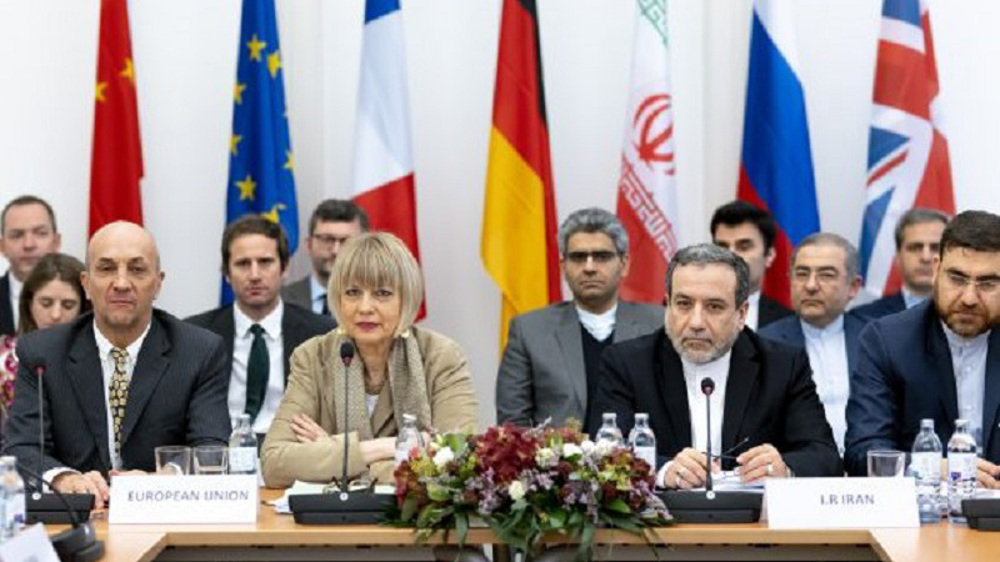
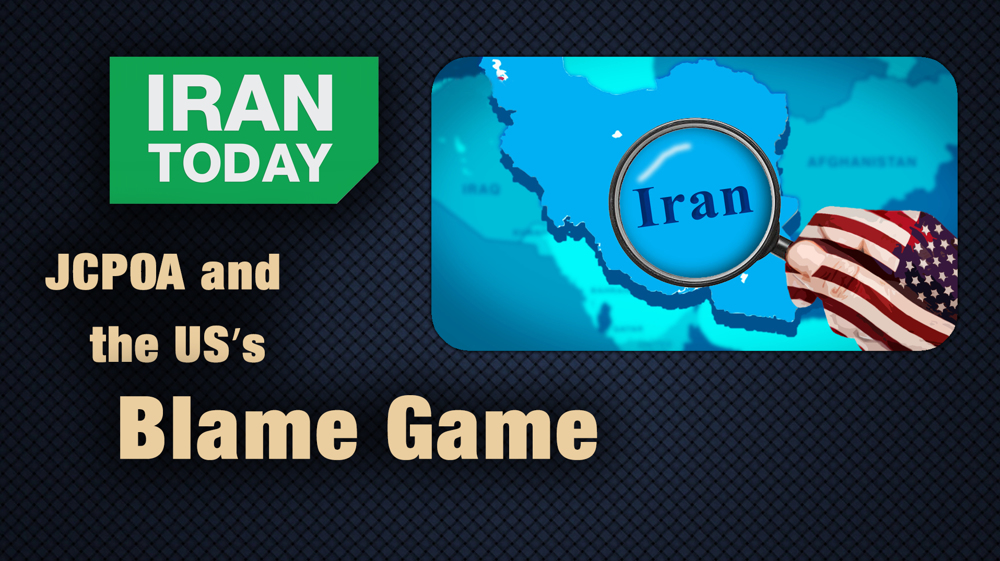
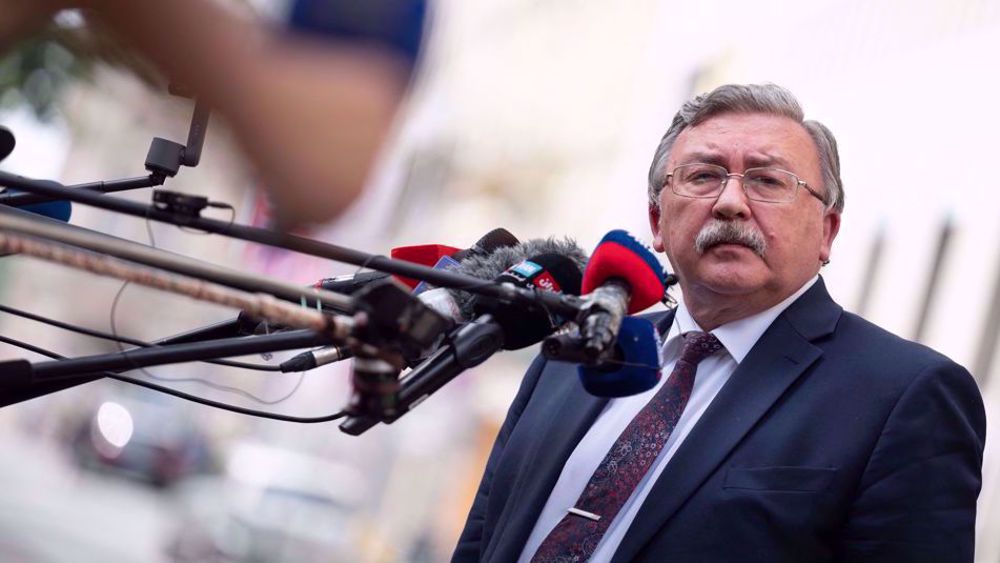
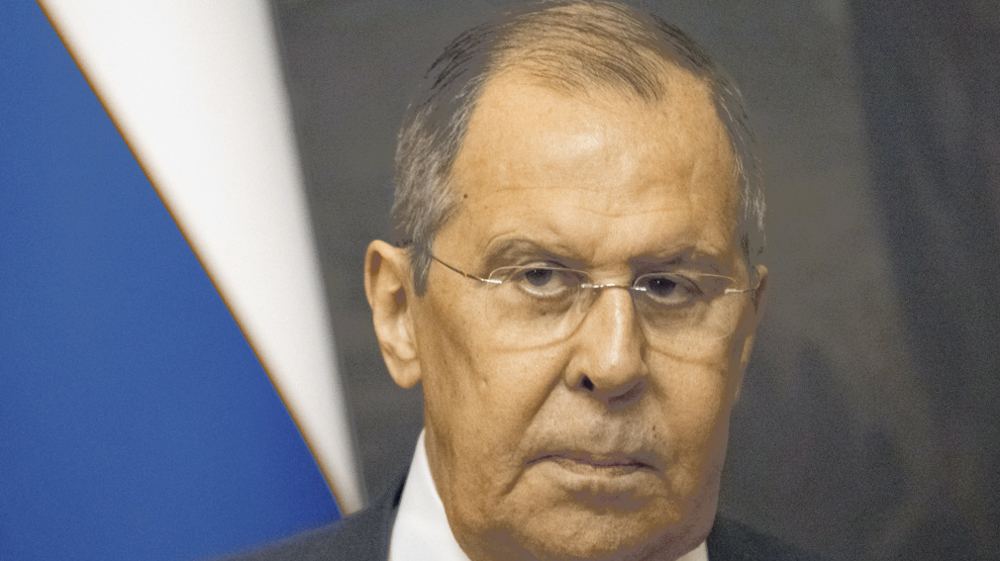
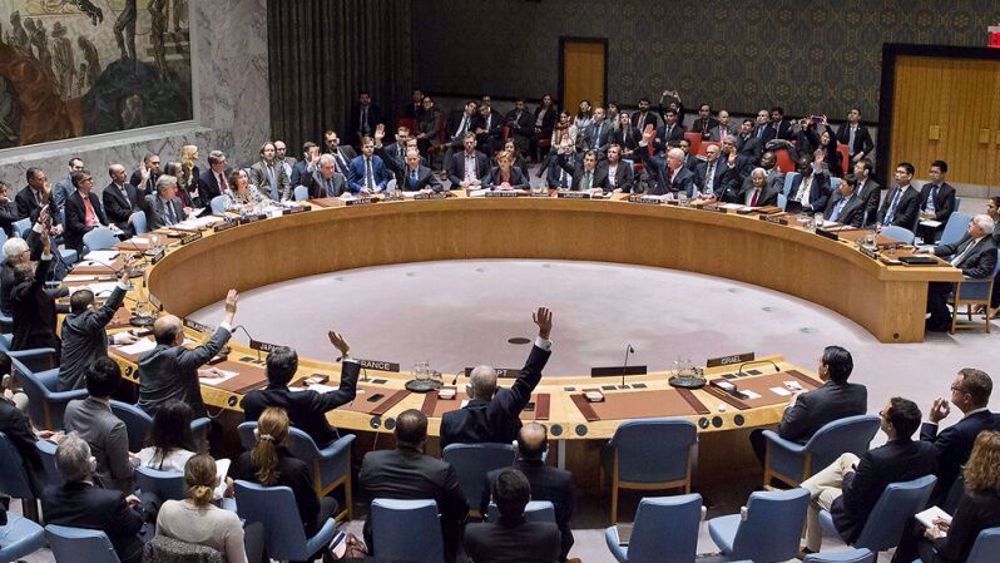
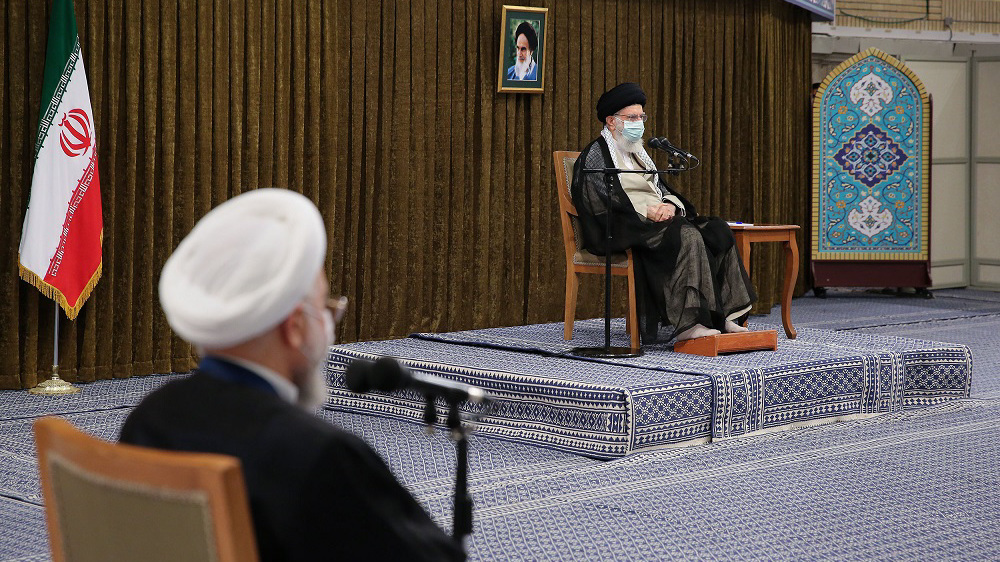
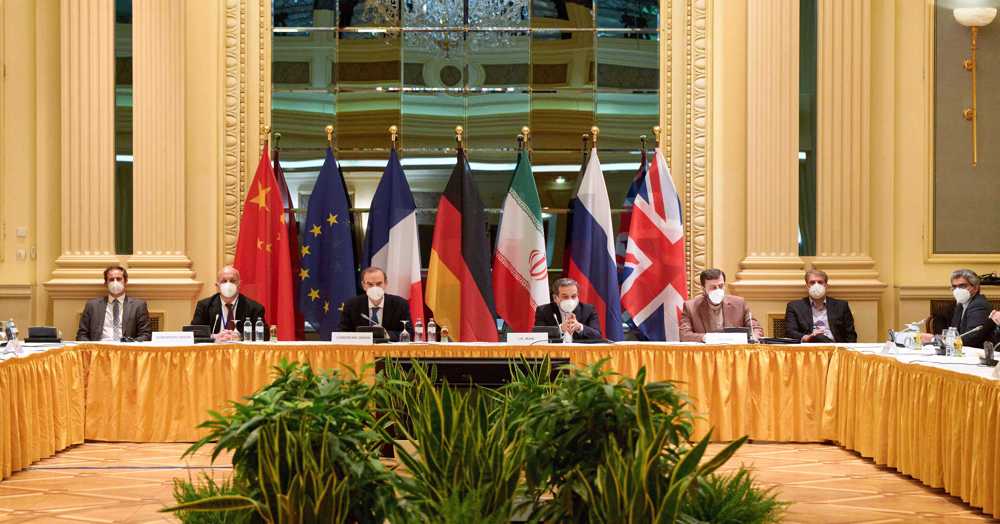
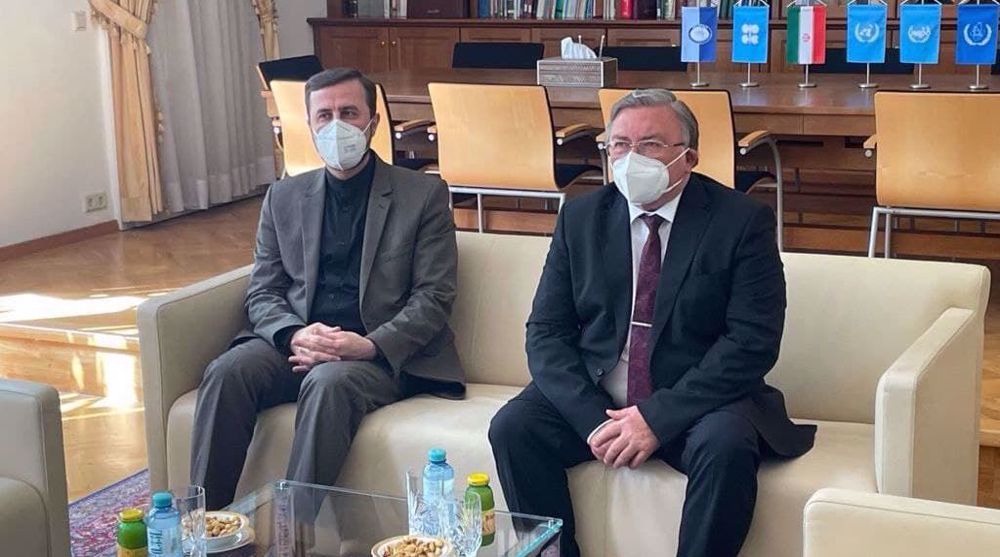
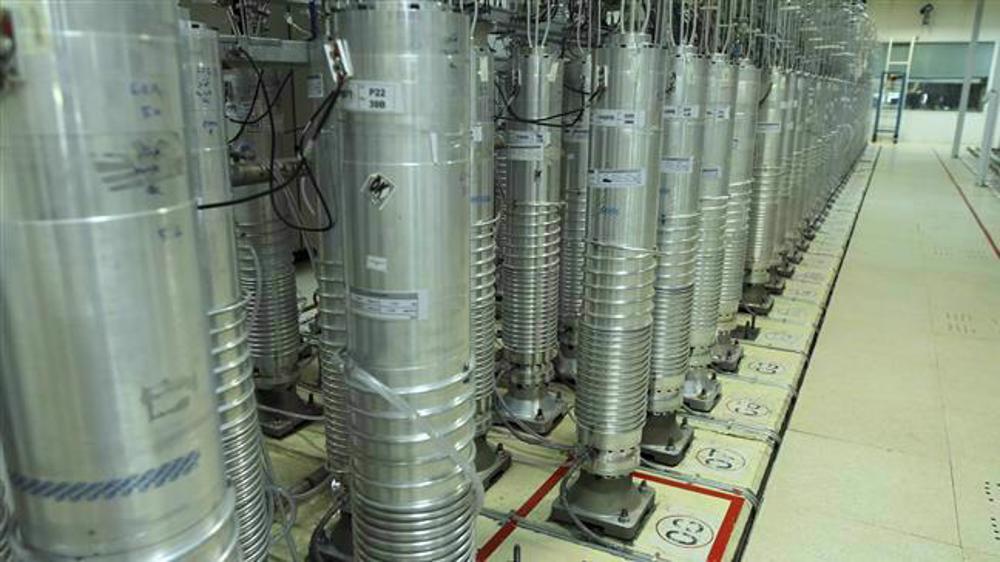
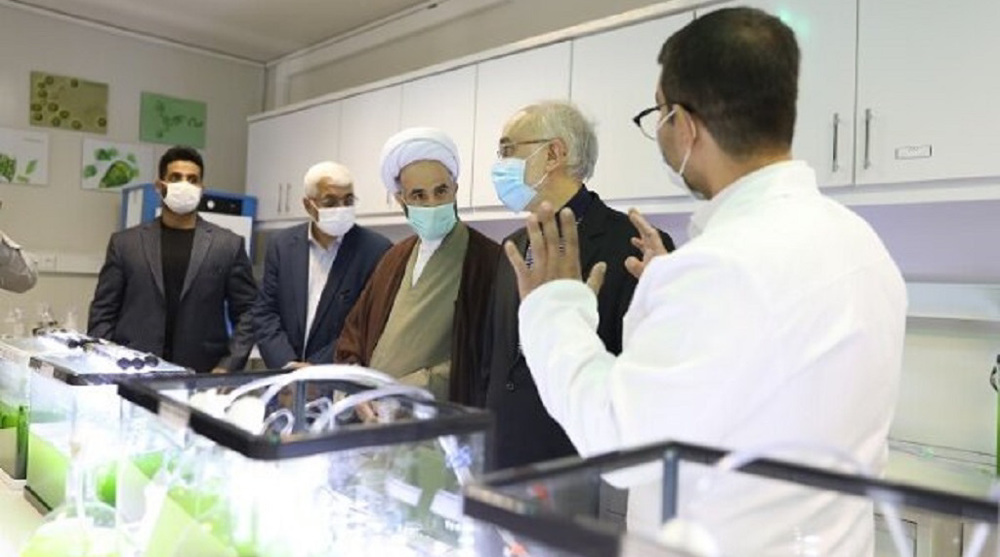
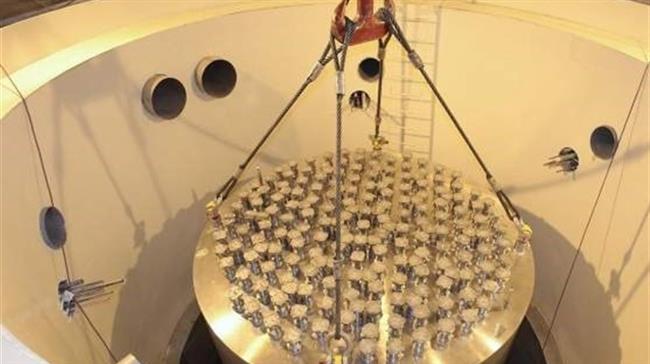
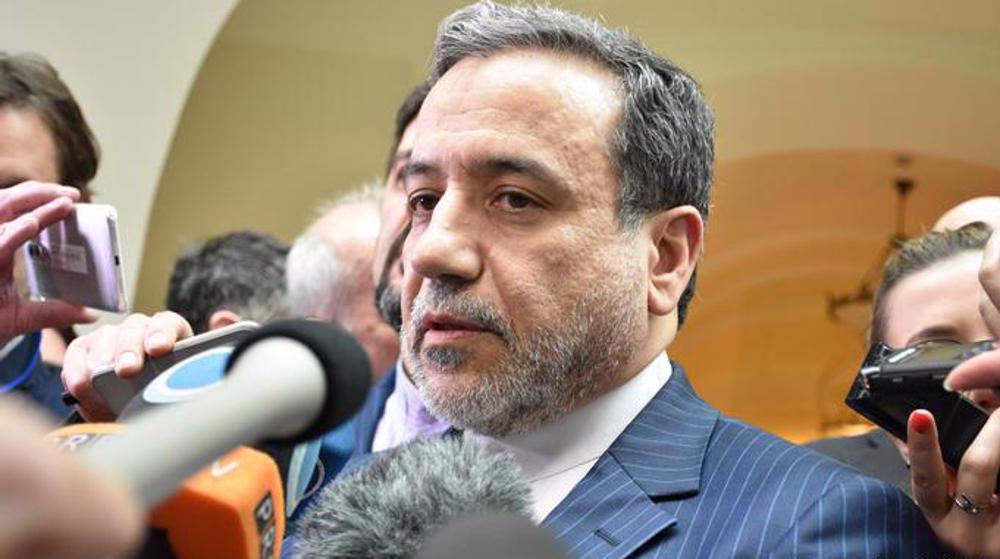
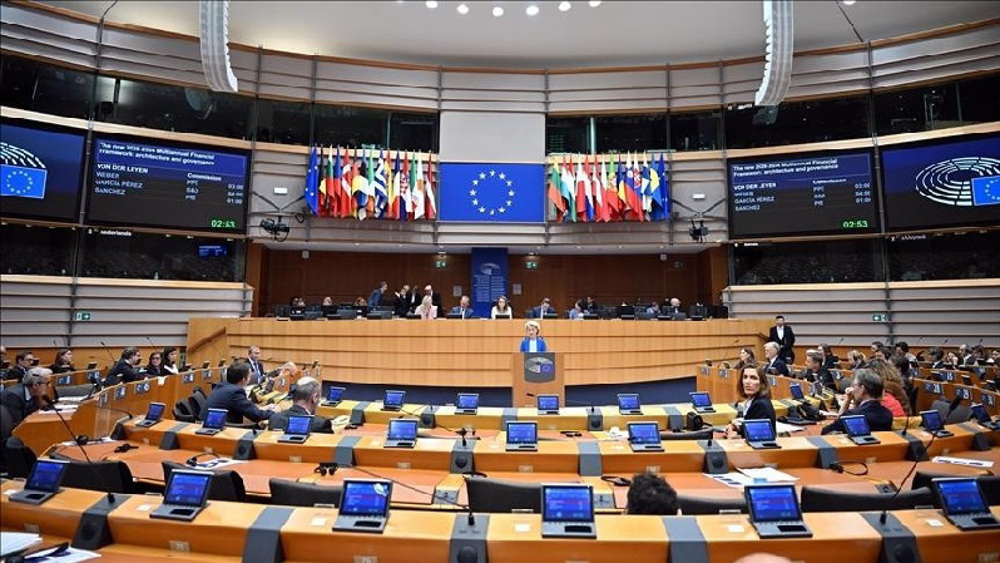
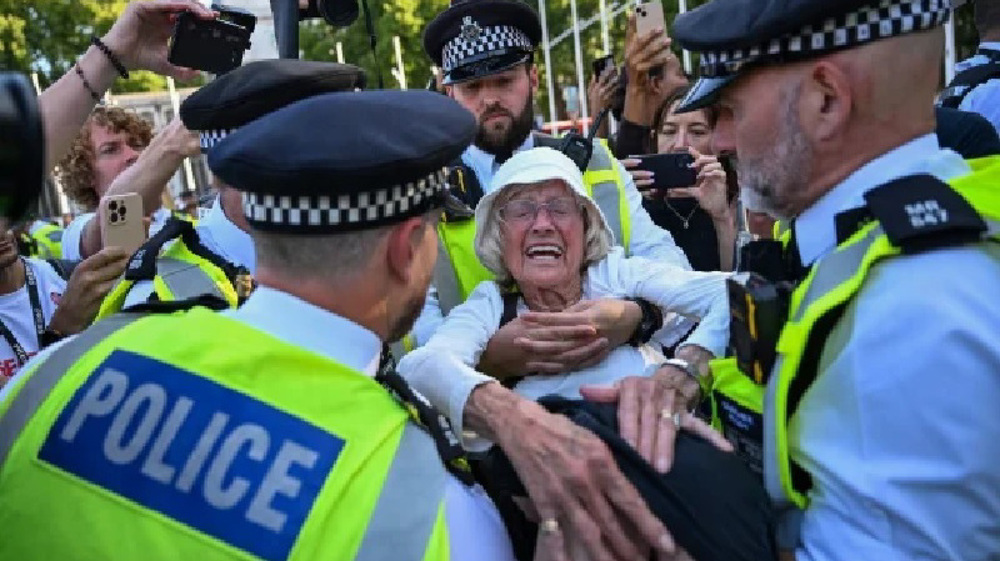
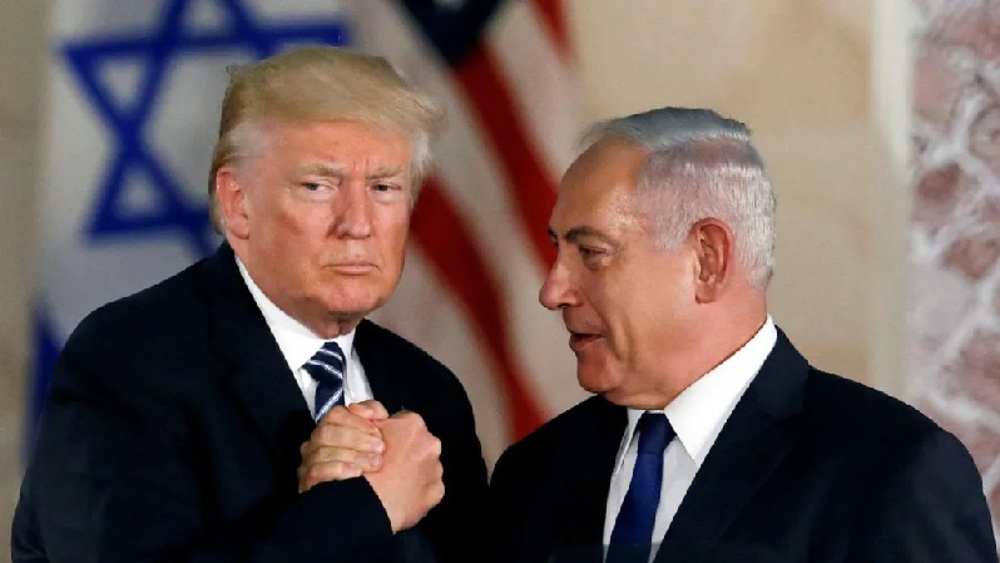



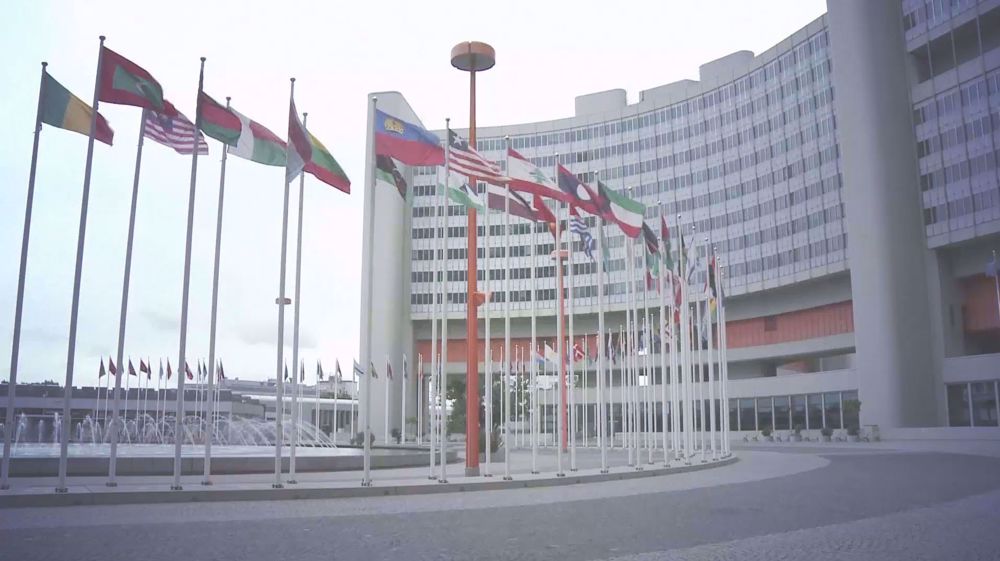
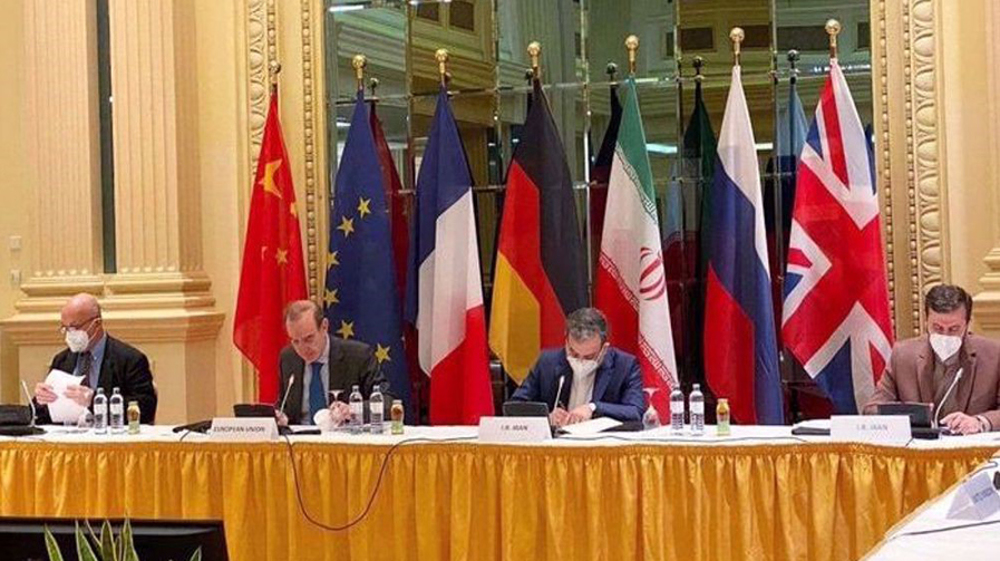
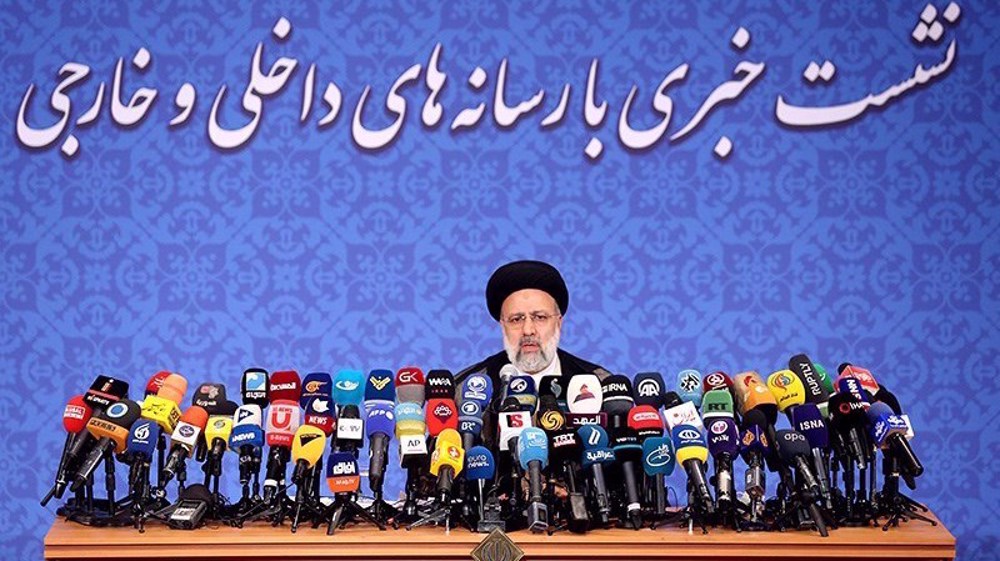
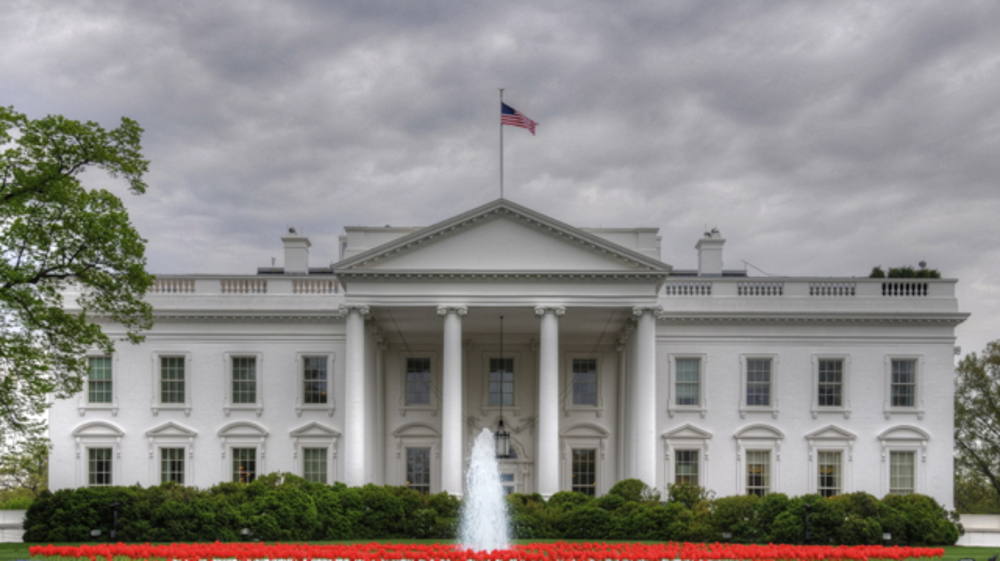
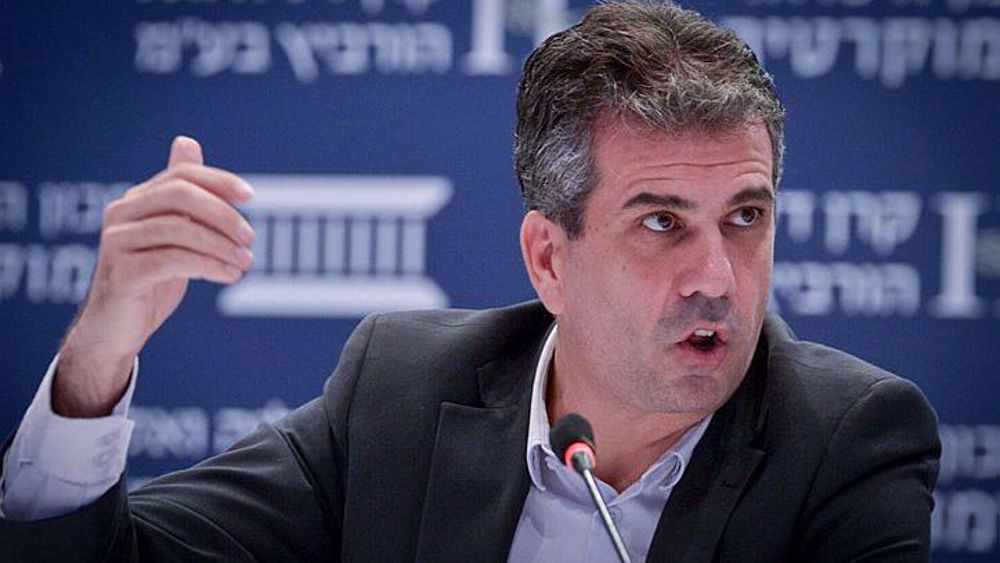
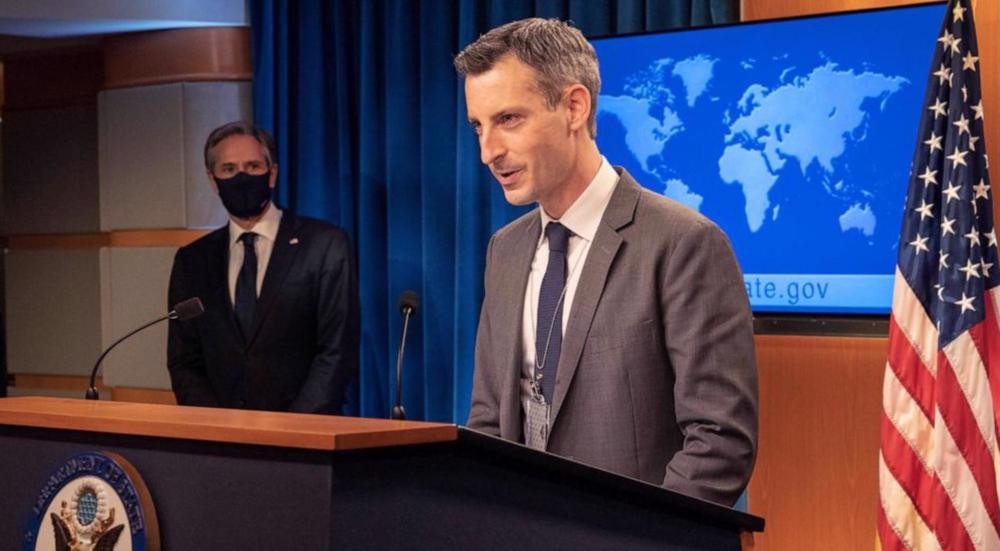

 This makes it easy to access the Press TV website
This makes it easy to access the Press TV website